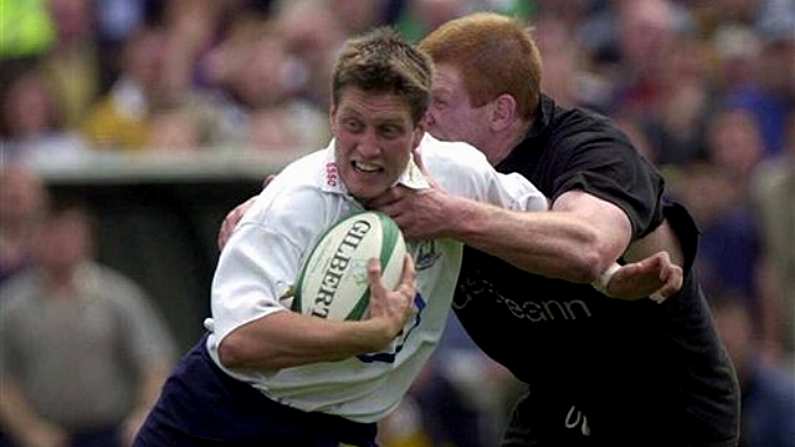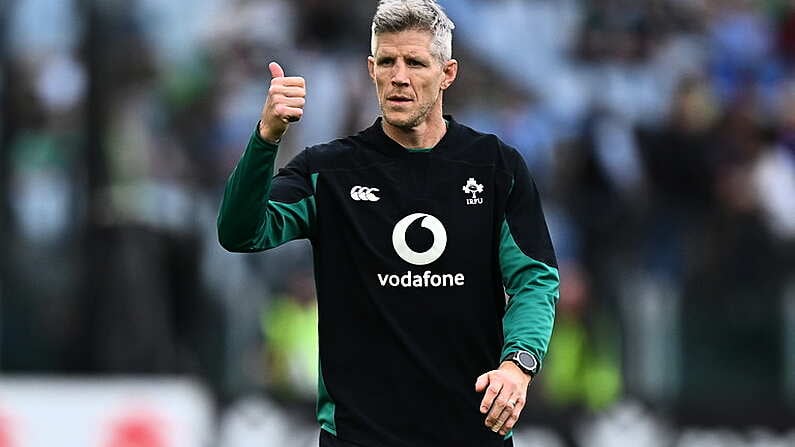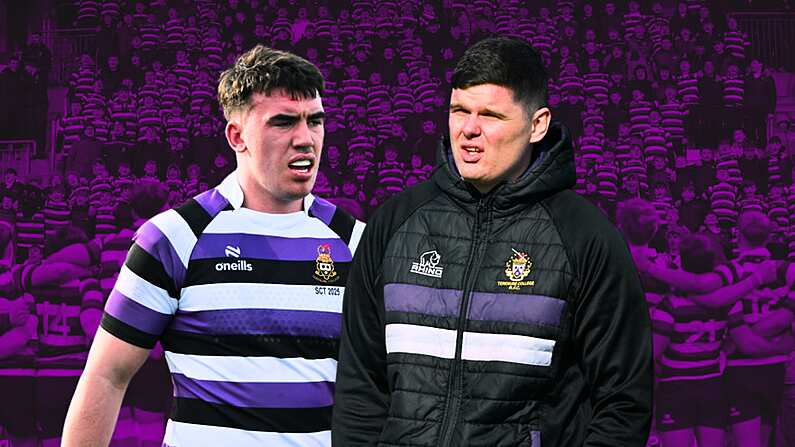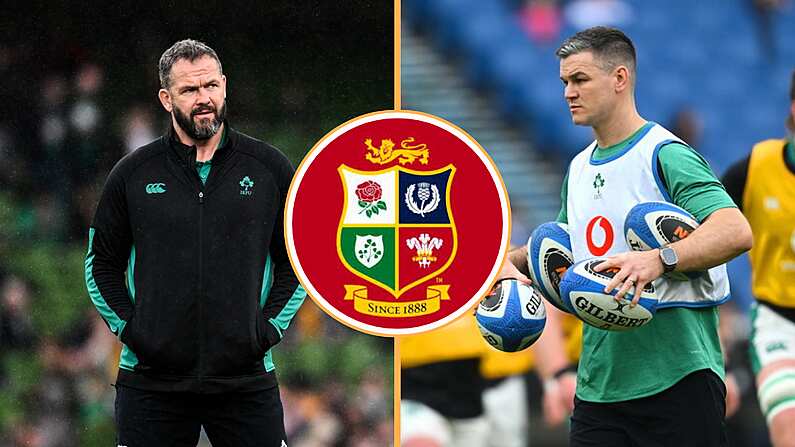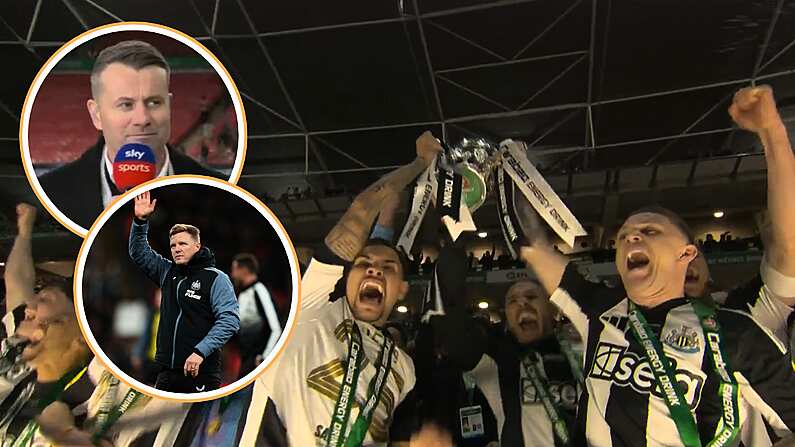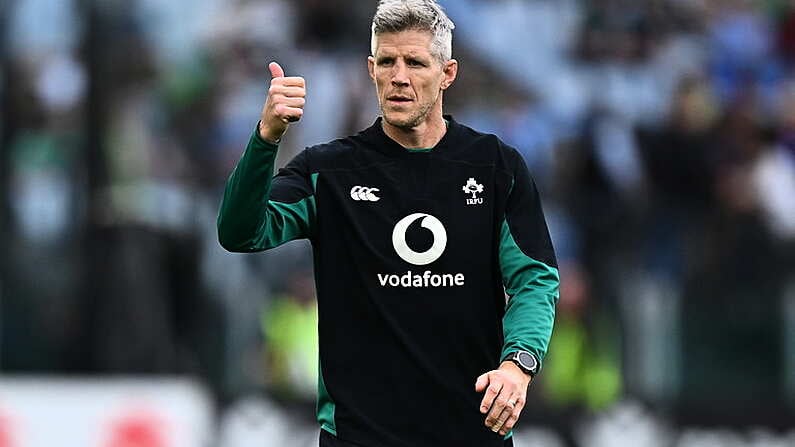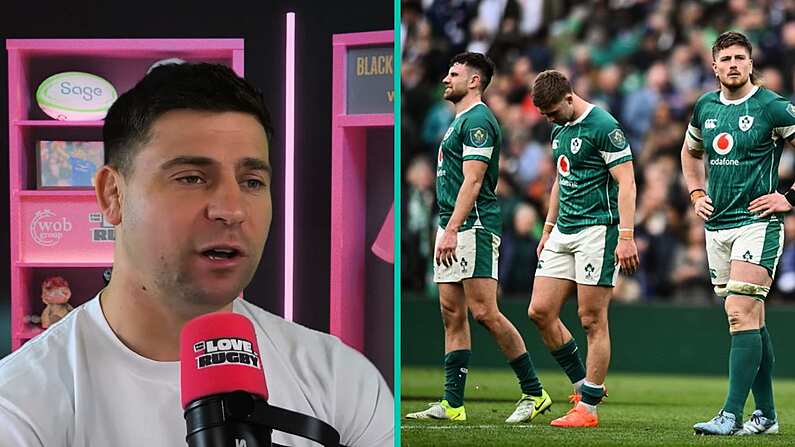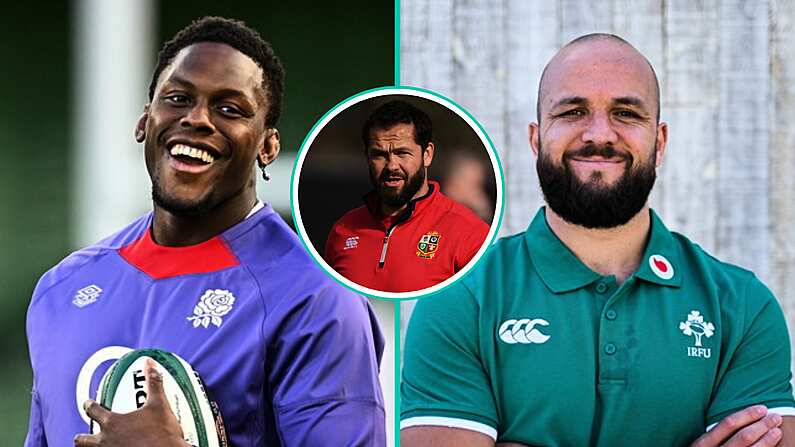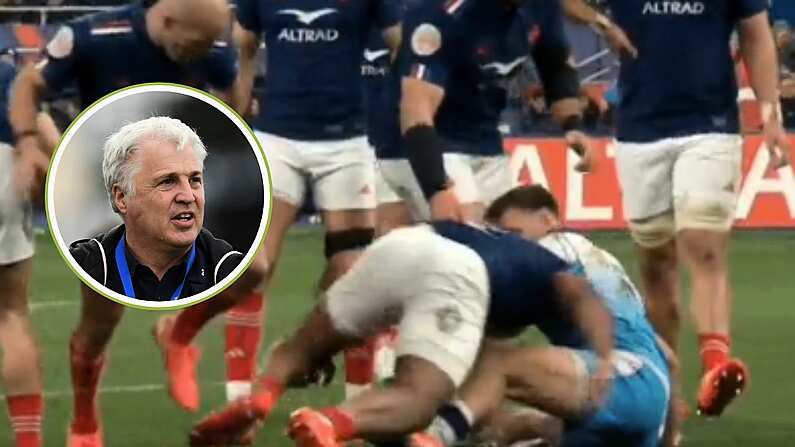There is an old video on youtube in which Richard Harris, sitting in an armchair in the Savoy Hotel in London, delivers a tribute to his childhood friend, the former Irish outhalf Mick English.
It was sometime in early 1998 and English's adopted club in Dublin, Lansdowne, were holding an event in his honour and this video was to be screened on the night.
The six minute video ranged across their childhood in Limerick, the injury to Harris's elder brother Noel which allowed Mick get a foothold in the Munster schools team, their early days as thespians running away from travelling impresario Anew MacMaster, and a funny story from English's time with the Lions.
A significant portion of the video concerned Harris lamenting that no Limerick players could get on the Irish team, a common complaint at the time.
In making his argument, it would hardly have occurred to Harris to cite Munster's results in the Heineken Cup, which were far from brilliant but were more respectable than the efforts of the other provinces. The European competition just hadn't caught fire in the public mind. That would only happen, very abruptly, two years afterwards.
Rather, it was felt natural to Harris point to Limerick's utter dominance in the AIL.
I hope you're not going to cut me off now because this is the important part of my speech. How come Shannon are no. 1 this year in the Irish League - isn't it called the AIB League? - Garryowen are no. 2, and Young Munsters are no. 3. If Shannon win it this year, which of course, they will, it will be the fourth year in a row. Garryowen have won it twice and Young Munsters have won it once. For the past seven years, Limerick teams have dominated Irish rugby and how come we can't a player on the Irish team? How come?
There followed some ribbing about how it was clearly impossible to get on the Irish team without first transferring to Lansdowne.
Harris would be unable to indulge in such boasting these days. No Limerick team has won the AIL since Shannon in 2008-09. Long the poor relation in the club game, Dublin clubs have won the last five AIL titles.
And Mick English's adopted club of Lansdowne, the members of which Harris playfully teased in his tribute video, have won two of the last three titles.
The previously mighty Shannon currently reside in Division 1B of the AIL, while Garryowen were relegated from the top tier for the first time in their history in the 2013-14 season - though they were promoted last season.
How much has this about-turn in fortunes at club level contributed to Munster's malaise?
Many of their greatest players were drawn from the successful AIL teams of the 1990s.
Paul O'Connell remembered as much on the eve of his final match for Munster. He dipped his toes into senior rugby at a time when the club scene was already on the slide after it's early-to-mid 1990s heyday. In an interview with Marcus Horan the day before last year's Pro12 final, O'Connell said he'd wished he could have been a bit older and played in the glory days of the All-Ireland League.
My Dad would have been going to all the AIL games. The AIL was the real thing that I grew up with. And in some ways, it's not a regret because you can't change your date of birth, but I would have loved to have been involved in the real glory days of the AIL in the mid-90s. Those are probably my first real memories of where the guys that became heroes for Munster, like Foley, Quinny, Wally, yourself (Horan), Hayes, all those guys, would have become legends in Limerick long before Munster took off.
Tom English, the author of the tremendous book 'No Borders - Playing Rugby For Ireland', says that the 'diminished relevance of clubs' is surely one of the factors accounting for Munster's decline. However, it is only one of several factors, including the financial muscle powering the French and English clubs.
He also suggests that perhaps people might get used to the idea that the crop of players that delivered success in the noughties were a special generation, an aberration.
I honestly think that that O'Gara, O'Connell, Quinlan, Foley, Flannery, Wallace, all that era... that's a one off. That's not the norm. That's an era that came along and that we're never going to see again. And maybe we were spoilt.
But weren't they all products of a vibrant club scene?
The club scene was in a vibrant state. But you're never going to go back to that. Let's take a look at O'Connell's story. The values that he has and has to this day were bred into him via Young Munster, the appreciation of physicality, that was bred into him by his teammates, old hard cases in Young Munster. That connection with the club game has been lost. How much it is to blame for what's happening now, it is hard to quantify that. But it's got to be one of the factors in there.
But the finance of other clubs. Munster are losing games to moneyed opposition. They're losing to big clubs with big budgets. And Munster don't have the same budget. They certainly don't have the same players as they had. They're losing players and they're not able to replace them.
So, I think it's several different factors but the diminished relevance of clubs is a problem for Irish rugby. If you look at the great players, their values came from their clubs. And that connection has been lost.
Even during Munster's pomp in the noughties, Mick Galwey warned that the club scene not be abandoned or forgotten about. Galwey played for the four-in-a-row winning Shannon team in the 95-98 period, the team whose achievements Richard Harris was so keen to extol before the Lansdowne audience. He regrets that the schools have superseded the clubs as the main feeders to the provincial game.
The club really was the feeder for the inter-provincial game which is now the professional game. And when the clubs go weak, there's no feeders. Then you're depending on schools. And I think there's too much of a gap. If you look at the strongest feeders to the professional game now, it's the schools. Whereas before, it was the clubs and I thought it was a much better system.
Nowadays, aspiring players are snapped up by the Munster academy at a young age. Galwey recalls a time when academy players weren't being released to their clubs. He believes the regeneration of Munster rugby lies in developing the club game.
I played in a Shannon pack one day that included seven players that went onto play for Ireland, you know what I mean. I look at my club days, Marcus Horan, John Hayes, myself, Eddie Halvey, Alan Quinlan, Anthony Foley, you know, we would have all come through the Shannon-AIL days. You look at the likes of the David Wallaces and Paul O'Connells. Paul O'Connell started his club career with Young Munster and that's where he learned an awful lot...
Sometimes I look at these young players coming through and I think there's a big opportunity lost, but it's not lost yet. I think the way back is through the clubs. Even when the provinces were going well, I would have said 'look, we can't forget about the clubs' because I would have gone to Shannon matches and then there'd be only a few hundred people there whereas before it would have been thousands.
Galwey says that sacking Anthony Foley is not the remedy for Munster's problems. The problems that afflict Munster are much more deep rooted that that.
The club game was massive in Munster and that's an issue for Munster rugby. You know, people are calling for people's heads and God knows what. This has been an issue that's been going on for a long, long time.
I was finished playing when Munster won their first Heineken Cup in 2006 and the previous week Shannon won the All-Ireland League. You know, that's not a coincidence. The club game produced all these players that won Heineken Cups for Munster. The teams in 2006 and 2008, each and everyone of them played for their clubs, each and everyone of them played in the top level in the AIL. And I'd say if you go through it, most of them would have won AIL. That was their grounding, that was where they learned the trade to play rugby.
Ginger McLoughlin, in an angry interview with the Irish Examiner last summer, laid into the Munster academy and advised the club scrap it and simply return the players to the club game.
A romantic idea but one which Tom English ultimately disagrees. There is no prospect of this happening. It has to be through the academies at this stage.
They're (Munster) losing big players and they're not being able to replace them. The big English and French clubs, when they lose a player, they're able to replace them with another world class player. Now Munster and Leinster are having to dip into their academies. And there's an argument to be made that any money that the IRFU have, they should plough it into the academies because they're not going to be able to bring in big name players. It's just not happening. You see the kind of money big name players are going for in France and England with their TV contracts.
So, they're going to have to go down a different road. They're not going to go back to the clubs. They're too far down that road. It's a shame that that connection has been lost. But that connection has been lost for a long, long time. A long time. And Leinster and Munster were winning European Cups and that connection had been broken by then.

